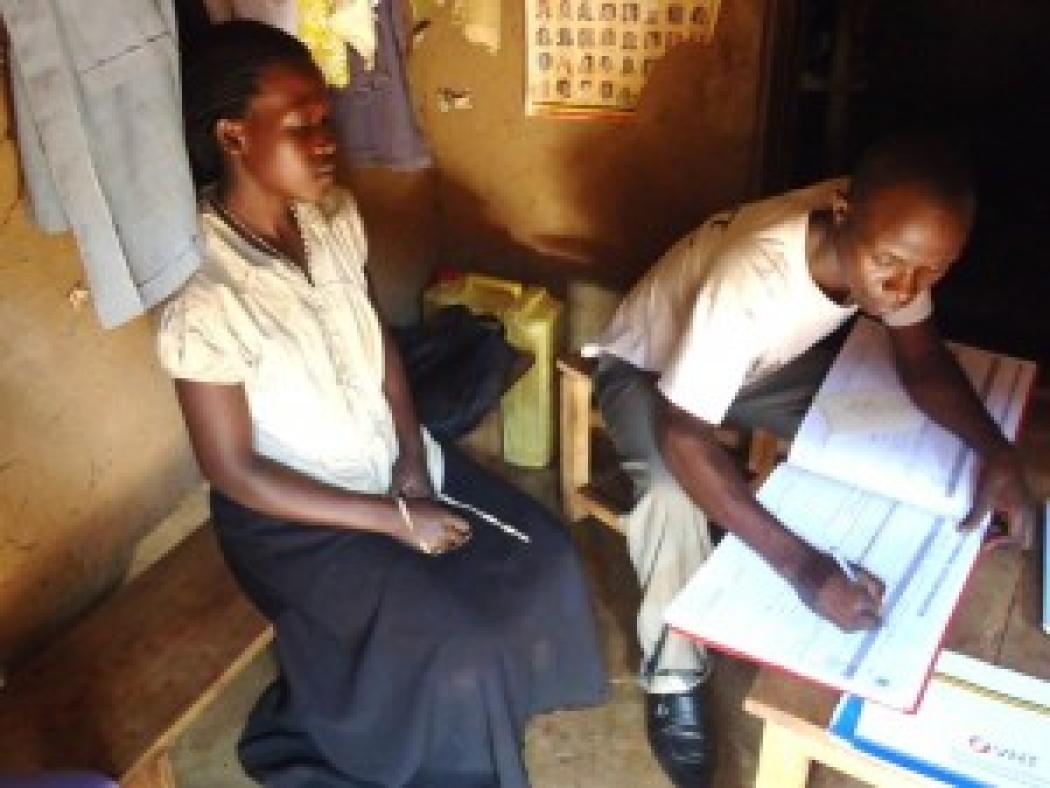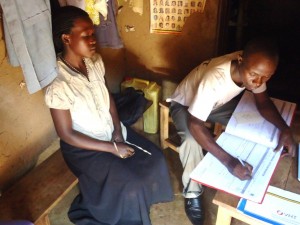Ugandan frontline health worker is a natural at saving lives

By Melissa May, Accordia Global Health Foundation The old adage “it takes a village to raise a child” is never more apt than in the lead-up to and first day in that child’s life, especially in rural and remote locations like Uganda’s Kibaale district. The Saving Mothers, Giving Life program — a collaboration of United States and Norwegian government agencies, partner developing-country governments, and private-sector non-governmental organizations —helps mothers and newborns during this highly vulnerable time. The assistance offered by Togonzangane Steven and other volunteer frontline health workers involved in the program goes far beyond safe motherhood. Steven, who earns his living as a farmer, is a 30-year-old village health team member volunteering in Nyamihindo village in Kibaale district. The Infectious Diseases Institute in Kampala, supported by the Accordia Global Health Foundation, is the lead implementing partner of Saving Mothers, Giving Life in the district. Responding to the shortage of health workers in the area, the program formed voluntary Village Health Teams (VHTs). Volunteers like Togonzangane create community awareness, sensitization, and surveillance, providing information about and encouraging visits to health facilities. In the Kibaale district, 1,900 VHT members, representing each village, have been trained. Steven’s story 
registering a client in a household. Courtesy Accordia Global Health Foundation.
From an early age, Steven has helped the health of people in his community, including as a sanitation monitor in his school and later a health representative in the community, making him a natural pick by his community to be a VHT member. To manage the time and effort his VHT responsibilities require, Steven plans his schedule so he can stop by several houses in close proximity five or six days each week. In the first month of each quarter, he visits all the households in the village and then returns to those with at-risk individuals. “While it can be difficult balancing personal duties with voluntary work, I have managed by drawing a plan and following it,” Steven said. “I visit households to collect data on members above 5 years of age, on pregnant mothers, and on children 5 years and below. My visits include monitoring household hygiene and sanitation. I sensitize members on health-related issues such as safe motherhood, malaria, and HIV/AIDS.” Steven visits three to five houses every day, sometimes having to go on foot because of impassable roads or lack of fuel for his motorbike. When the program began, Steven’s efforts and diligence were not always understood or welcomed by all village members. “Some community members felt irritated when I visited them every month,” he said. “They regarded it as a waste of time and a disturbance. I have overcome this through continuous sensitization of the community members specifically about my role as a VHT, explaining that it entails reporting disease outbreaks and conducting referrals—especially for pregnant mothers and babies—all of which require constant monitoring.”
“When mothers are safe, we get hope that the future is bright for both mothers and babies” - Togonzangane Steven, Village Health Team member, Saving Mothers Giving Life program
Steven’s commitment to achieving healthier outcomes for his community members keeps him motivated. “Mothers used to die without accessing care, but now they are able to get care and services,” he explained with pride. He added, “In the past, most people in my village—men inclusive—had a bias against using mosquito nets. They thought they contained chemicals that would make women infertile. I conducted a meeting in the village in conjunction with the district health team, then women started going to the health facility to receive the mosquito nets. Eventually, they started encouraging others to go the health facilities. As I speak, there is a mosquito net in every home in my village. I feel my efforts have paid off, and this gives me joy because the malaria cases have reduced in my village.”
